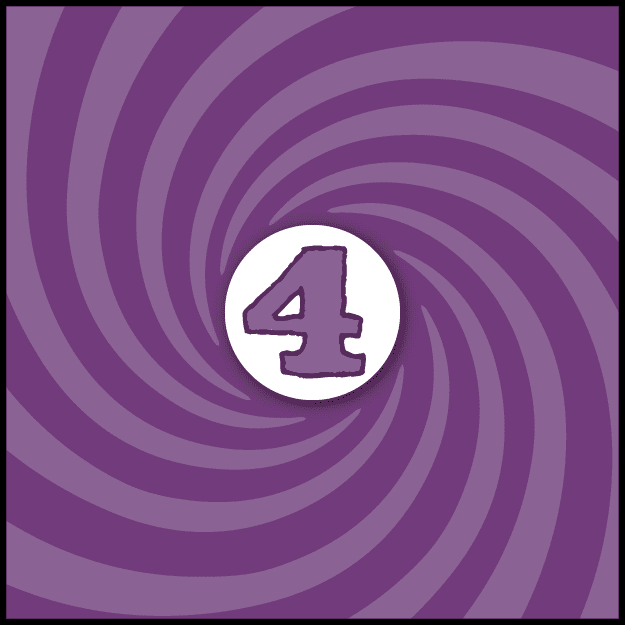Those of us who want to identify our Enneagram types correctly, as well as those of us who guide others, have a common intention: accuracy! But too often, one phrase or statement reminds us of one of the types in particular. As a result, we end up thinking This is it! A closer examination or inquiry into such statements often reveals a type other than what we first imagined.
In this series of 9 blogs, I take one statement we might easily associate with a particular type, but then use a lucid probing technique, which involves two specific questions that uncover the true meaning of the statement. It works like this. First, ask a question to explore the meaning of the statement, rather than making an inference from the statement. Second, explore the underlying drive or motivation beneath the statement.
Lucid Probing
1st Explore the meaning of the statement
What does ____ mean to you?
2nd Explore the underlying motivation for the statement
What causes you to _____?
The Statement | “I must be authentic and real.”
This statement sounds like a type 4, but is it? Yes, Fours want to be authentic and real, but so do many other types. Here’s what Fours might say, as well as a sampling of a few other types.
Type 4
1st Explore the meaning of the statement
What does “I must be authentic and real” mean to you?
What a Four might say
“I need express my deep feelings and authentic experiences as much as I possibly can. Sometimes I can’t do this, but I make an effort to do this and wish everyone else would as well.”
2nd Explore the underlying motivation for the statement
What causes you to want to “be authentic and real”?
What a Four might say
“Being real and being authentic is a strong value for me and always has been. I can’t really explain exactly why this is so, it just is. In many ways, I think being real and authentic is what we all should ultimately strive to be. For me, it’s a constant search.”
Yes, the answers appear to suggest this person might be an Enneagram Four. However, without the inquiry of Lucid Probing – that is, if the initial statement “I must be authentic and real” was taken at face value and it was assumed to be a Four statement – an unintentional wrong typing identification is possible. Here are some other types that might easily have made the statement “I must be authentic and real.”
The Statement | “I must be authentic and real.”
Type 3
1st Explore the meaning of the statement
What does “I must be authentic and real” mean to you?
What a Three might say
“Being real is an aspiration for me. I think I’m real, but then the more development work I’ve done, the more I realize I am in a search for my deeper self. Sometimes I get feedback from people who say I don’t feel real to them. I don’t quite understand it.”
Note: a self-preservation subtype 3 might say that they are completely authentic and real already; this is a result of their having an image of no image, which can be confused for being authentic.
2nd Explore the underlying motivation for the statement
What causes you to want to “be authentic and real”?
What a Three might say
“I’ve always strived for results and emphasized getting things done. Now I realize that I need to really be my true self, not be what others think I should be. But I’m also not sure how to do this.”
The Statement | “I must be authentic and real.”
Type 6
1st Explore the meaning of the statement
What does “I must be authentic and real” mean to you?
What a Six might say
“It means I can’t stand dishonesty and lack of authenticity in people and dishonest people are not authentic or real.”
2nd Explore the underlying motivation for the statement
What causes you to want to “be authentic and real”?
What a Six might say
“I want to be true to myself, to be able to count on myself (as well as others). If I want others to be authentic and real so I can trust them, I also need to be authentic and real myself.”
The Statement | “I must be authentic and real.”
Type 9
1st Explore the meaning of the statement
What does “I must be authentic and real” mean to you?
What an Nine might say
“I need to be myself. I think I am but….”
2nd Explore the underlying motivation for the statement
What causes you to want to “be authentic and real”?
What an Nine might say
“I feel like I lose myself when I am with other people. This can feel good, but then I am left with a lingering sensation of not being fully myself in the process. Being authentic and real means not putting on airs or having an attitude plus many other things.”
The above three examples are simply samples. Many Enneagram types might say they “I must be authentic and real,” but their reasons would be different!
Ginger Lapid-Bogda PhD, the author of seven Enneagram-business books, is a speaker, consultant, trainer, and coach. She provides certification programs and training tools for business professionals around the world who want to bring the Enneagram into organizations with high-impact business applications, and is past-president of the International Enneagram Association. Visit: TheEnneagramInBusiness.com| ginger@theenneagraminbusiness.com



